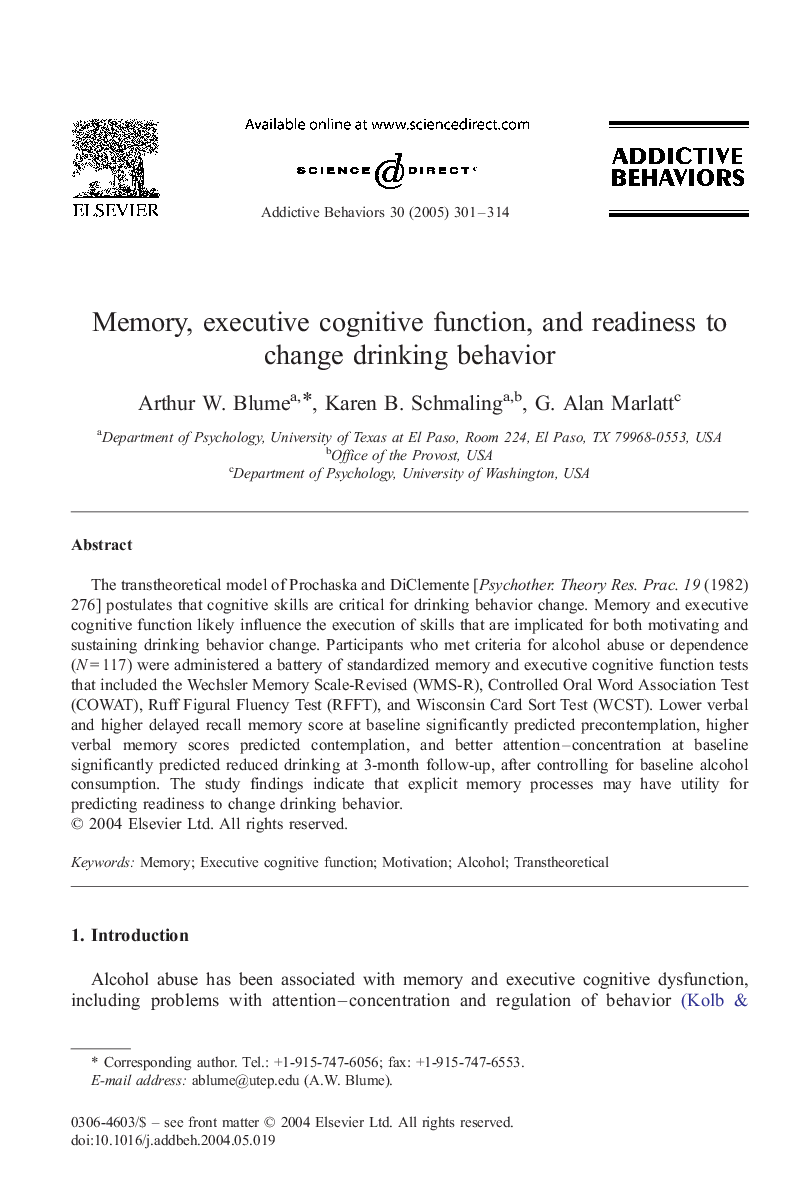| Article ID | Journal | Published Year | Pages | File Type |
|---|---|---|---|---|
| 10443590 | Addictive Behaviors | 2005 | 14 Pages |
Abstract
The transtheoretical model of Prochaska and DiClemente [Psychother. Theory Res. Prac. 19 (1982) 276] postulates that cognitive skills are critical for drinking behavior change. Memory and executive cognitive function likely influence the execution of skills that are implicated for both motivating and sustaining drinking behavior change. Participants who met criteria for alcohol abuse or dependence (N=117) were administered a battery of standardized memory and executive cognitive function tests that included the Wechsler Memory Scale-Revised (WMS-R), Controlled Oral Word Association Test (COWAT), Ruff Figural Fluency Test (RFFT), and Wisconsin Card Sort Test (WCST). Lower verbal and higher delayed recall memory score at baseline significantly predicted precontemplation, higher verbal memory scores predicted contemplation, and better attention-concentration at baseline significantly predicted reduced drinking at 3-month follow-up, after controlling for baseline alcohol consumption. The study findings indicate that explicit memory processes may have utility for predicting readiness to change drinking behavior.
Related Topics
Life Sciences
Neuroscience
Behavioral Neuroscience
Authors
Arthur W. Blume, Karen B. Schmaling, G.Alan Marlatt,
